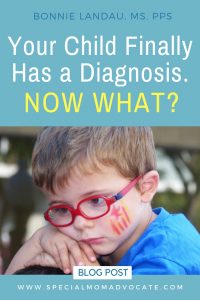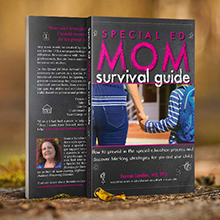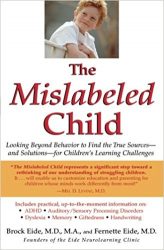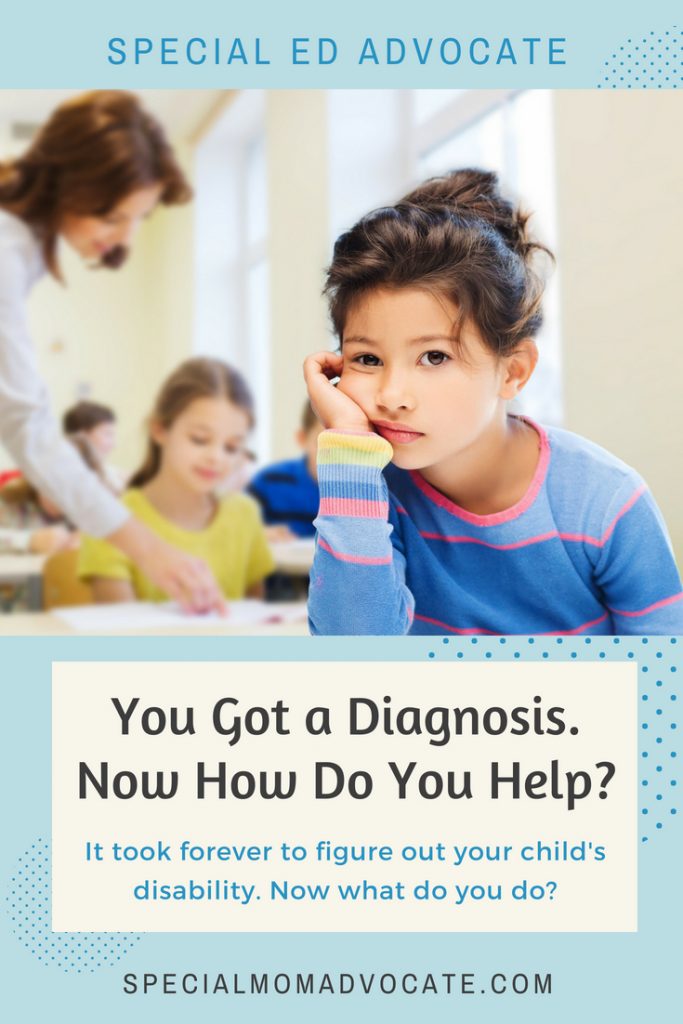 Your child has been struggling with learning challenges, so you sought out some answers. Now you have a diagnosis.
Your child has been struggling with learning challenges, so you sought out some answers. Now you have a diagnosis.
It could be ADHD, dyslexia, auditory processing disorder, sensory processing disorder or maybe even autism. Even though you sought it out, the words hit you like a ton of bricks. You thought for sure the doctor would say it was something that was fixable. But now you see your child with a label for a condition that is permanent.
What is that label?
My child has ________________________.
Just say it out loud and think about how it feels.
It’s hard, isn’t it?
I remember when the neuropsychologist labeled my child PDD-NOS. She specifically said she was putting him there because she didn’t know where else to put him. She wasn’t giving him an autism diagnosis because he was missing half the criteria. But he was definitely severely delayed. PDD-NOS was the catch bucket category. It’s code for, “We don’t know what is wrong with your child.” They got rid of it in the DSM-V so now doctors have to be more specific about the diagnosis.
The diagnosis gave me no satisfaction. It gave me nothing to go on. No ideas on how to help him. In fact, the neuropsychologist said there was nothing that could be done. Just accept him as he was. Get him into a special school if we could, or at least get him a one-on-one aide in public school. At least if it had been autism we would have had services, but now we had nothing. The diagnosis sat in my stomach like a sour meal.
The diagnosis is just a label.
I want you to read that again: The diagnosis is just a label!
 The truth is, there is no way to know what is really going on in your child’s brain. The diagnosis of a learning disability is made based on a whole lot of checklists, observation and analysis of symptoms. It does not tell you WHY your child is struggling. In chapter 4 of my book, Special Ed Mom Survival Guide, I talk about how the diagnosis can handicap you, keeping you from seeking solutions that can help your child improve dramatically.
The truth is, there is no way to know what is really going on in your child’s brain. The diagnosis of a learning disability is made based on a whole lot of checklists, observation and analysis of symptoms. It does not tell you WHY your child is struggling. In chapter 4 of my book, Special Ed Mom Survival Guide, I talk about how the diagnosis can handicap you, keeping you from seeking solutions that can help your child improve dramatically.
For us, it became clear pretty quickly how useless that PDD-NOS label really was. I had told the neuropsych that I suspected my son had auditory processing disorder. She said she tested him for that and it came back normal, so she did not accommodate for it on any of his assessments.
Four months after he saw her he was diagnosed with severe auditory processing disorder by a qualified audiologist. He could only understand 9% of what was said if there was a competing noise. As a result, all verbal assessments the neuropsychologist did were invalid. The neuropsychologist was wrong.
So what is REALLY going on under that label?
This is the question you have to answer. While it’s true some people do have neurological conditions, these global diagnosis do not tell you the exact nature of your child’s condition. In chapter 19 of my book, Special Ed Mom Survival Guide, I talk about getting to the root of the problem. I outline the 5 steps you must take to uncover what is really going on.
For example, with poor motor coordination a child may be diagnosed with dyspraxia. This means there is poor muscle tone and therefore difficulty coordinating limbs and digits. The course of treatment is extensive occupational therapy and maybe even physical therapy.
Dyspraxia can be caused by many things. One of the most common is mitochondrial dysfunction. Poor muscle tone is a significant earmark for mitochondrial issues, and seeing a developmental pediatrician could uncover a mitochondrial issue that can be resolved with vitamins or other medical treatment. The child will still need the occupational therapy to catch up, but the timeline will go quicker and easier since the body will now have what it needs to grow and improve.
Have you ever researched other causes of your child’s label?
 Consider visiting Google and searching for other diagnosis that could match the symptoms for your child’s label. The book The Mislabeled Child by Drs. Eide is one of the best publications for helping you figure all of this out. They go through each of these global diagnosis and talk about what else could be causing the problem. It is the perfect launching point to help you figure out what the root cause of the problem might be.
Consider visiting Google and searching for other diagnosis that could match the symptoms for your child’s label. The book The Mislabeled Child by Drs. Eide is one of the best publications for helping you figure all of this out. They go through each of these global diagnosis and talk about what else could be causing the problem. It is the perfect launching point to help you figure out what the root cause of the problem might be.
I’m not denying there is a problem.
Just because I say the label isn’t the final answer doesn’t mean I’m telling you there is no problem. What I’m hopefully getting across is that the labels are so global, they don’t really earmark the specific challenge your child is having.
At the Amen Clinic in Irvine, California they use QEEG brain maps, SPECT scans and biological testing to determine the underlying cause of ADHD symptoms. They have identified 7 types of ADHD, each requiring a different course of treatment. Some, like post-concussive syndrome, can be recovered. Others, like chemical imbalance in dopamine, will require medication. The Amen Clinic is a perfect example of looking under the hood and finding that root cause.
How would you feel if your child could improve or even recover?
That is the feeling that should propel your research. If your child’s struggles could be fixed, what would that mean for your child, your family, YOU as a special needs mom? Finding answers is not always easy, but it’s worth it!
I do parent coaching to help you in this process.
This is the whole reason I have switched careers in the middle of my life. I am totally focused on helping you help your child. I can help you with special education advocacy to get the right support in school, and I can also help you get to the root of the problem and find solutions that may improve it or resolve it altogether. I have a signature program where I take you through the steps of learning how to do the research, how to choose the right direction and how to trust yourself to find the correct answers.
My dream is that all special needs parents will see this opportunity of recovery so they can take effective steps to help their child get better. It’s not a guarantee, but a possibility for an easier future.
Please contact me if you want help figuring out this puzzle for your child!
ABOUT THE AUTHOR:
Bonnie Landau is a professional counselor and holistic therapist in Ventura County, California. Her specialities include therapy for autism, therapy for ADHD, and therapy for parenting who have kids with autism or ADHD or other neurodivergence. She changed careers from graphic design to counseling with the goal of helping struggling parents of kids with ADHD, autism, or other neurodivergence find strategies and solutions to help their children succeed. Bonnie is also the author of Special Ed Mom Survival Guide: How to Prevail in the Special Education Process and Find Life-long Strategies for You and Your Child.



